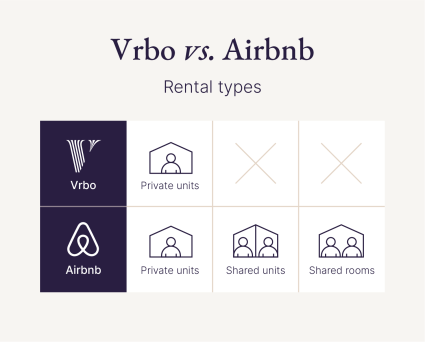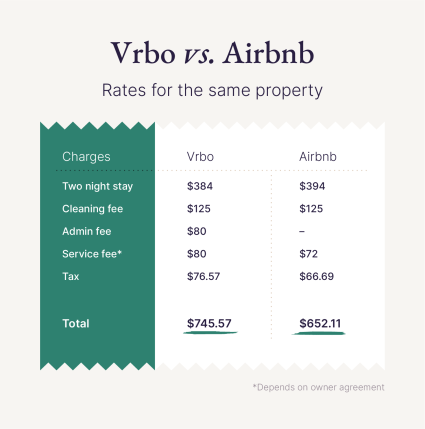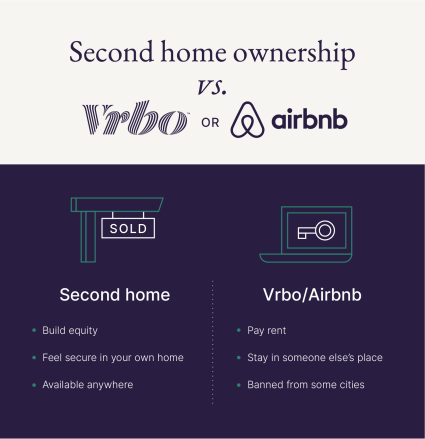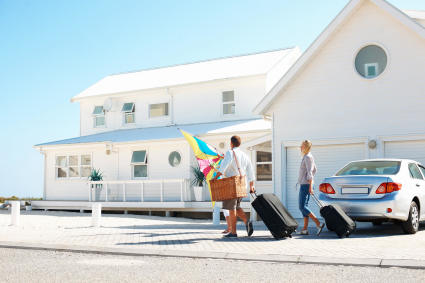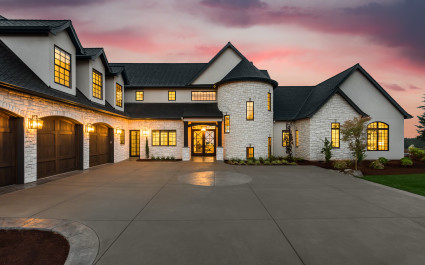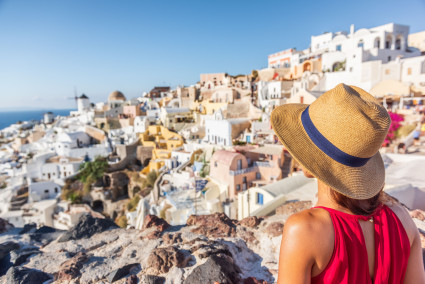35 hobbies for empty nesters to try after kids leave home
Although it may take some time, embracing an From candlemaking to scuba diving, there is an 1. Travel If your dream has always been to travel the world and experience different cultures, there is no better time than now. You can start small by planning day trips to nearby cities and local attractions. However, if And if you fall in love with a vacation destination, you might want to consider owning a second home there. A fully managed 2. Volunteering Volunteering is an impactful and meaningful hobby for empty nesters who want to fill their new free time with purpose and joy. Volunteering can help you connect with your community, get to know your neighbors, learn new skills and contribute to a cause you care about. Whether you love animals, children, nature, art or simply helping those in need, there is a volunteer opportunity nearby waiting for you. 3. Dance lessons If you’re looking for a creative way to break a sweat, you might want to consider taking dance lessons. Dancing is not only a great form of exercise but it’s also a wonderful way to express yourself while going through the transition to empty nesters. Whether you prefer ballroom, salsa, swing or hip-hop, you can enjoy learning new steps and the social interaction that comes from dance. 4. Foster a pet Fostering a pet can be a fulfilling hobby for empty nesters who miss their children. Pets can offer unconditional love, companionship and affection while providing home to animals in need. Fostering a pet also has the advantage of being flexible and temporary. You can travel to 5. Learn a new language Learning a new language is a great hobby for empty nesters who want to keep their brains sharp. There are many resources and methods available to help you learn a new language at your own pace. You can also set realistic expectations and celebrate your progress along the way. Learning a language can give you opportunities to also learn about the history, traditions and values of the people who speak it. 6. Gardening Gardening is as rewarding as it is relaxing. It’s a hobby that can help parents cope with the transition of their children leaving home by providing a sense of accomplishment and a connection with nature. Gardening has the potential to improve physical and mental health, as it involves being outdoors and interacting with a variety of living organisms. Anyone can start gardening at a low cost via raised garden beds, indoor containers or small plots. 7. Beekeeping If you find yourself with an empty nest, consider creating your own hive. Beekeeping is a hobby that can bring joy and satisfaction to empty nesters who are looking for a new challenge and a way to contribute to the environment. Not only can you enjoy delicious honey and beeswax products from your own hives, but you can also help the environment by supporting the pollination of flowers and crops. 8. Bird-watching Bird-watching can be done from your backyard, at a nearby park or even in exotic locations around the world — making it the perfect hobby for anyone interested in having a second home in Enjoy the challenge of spotting rare or elusive birds. Consider participating in projects that involve collecting and reporting data on local bird populations to help researchers and conservationists protect these unique creatures. 9. Fishing Fishing can be enjoyed solo or in a group setting. It’s a hobby anyone can try, regardless of their skill level or budget. All it takes is some basic equipment, patience and a willingness to learn. Fishing also offers you the chance to learn more about the aquatic ecosystem, local marine species and conservation efforts happening in your area. 10. Hiking Hiking is a hobby for empty nesters that can help you rediscover yourself. You can set your own goals, pace and schedule, and enjoy the freedom and flexibility that comes with having more time for yourself. You can also use hiking as an opportunity to bond with your spouse or partner, who may also be going through the same difficult emotions. It can challenge you both to learn new skills, explore new places and connect with nature. Consider booking a hiking trip in the mountains and staying at a 11. Camping Searching for a hobby that gets you back to the basics and provides an instant connection to the great outdoors? Then grab your gear, pack your bags and hit the road for unforgettable camping adventures. This hobby can be as mild or intense as you’d like by choosing from different types of accommodations such as tent camping, RV camping, backpacking or glamping. 12. Snorkeling Snorkeling is a relaxing hobby for empty nesters who want to explore the underwater world. Snorkeling does not require any special training or equipment other than a mask, snorkel and fins. You can snorkel in any clear and calm water, such as lakes, rivers or oceans. 13. Scuba diving Scuba diving is for thrill seekers who want to dive deep and experience underwater ecosystems. Whether you are a beginner or an experienced diver, there are many opportunities to scuba dive all around the world. From coral reefs to shipwrecks, you’ll never run out of subterranean playgrounds to explore. 14. Running Running can be an enjoyable and beneficial way to prioritize your health. All you need is a pair of running shoes, some comfortable clothes and a positive attitude. You can start running slowly and gradually increase your distance and speed as you get fitter and more confident. You can also vary your routes and routines to keep things interesting and challenging. For example, compare how it feels to run along the 15. Biking Biking is a low-impact exercise that can improve your cardiovascular fitness, strengthen your muscles and bones, and reduce stress. As a hobby, biking offers many opportunities to explore new places and enjoy nature. Whether you prefer neighborhood biking, mountain biking or biking through the city, there is a bike and a trail waiting for you. 16. Golf Golf is a popular hobby for many people who have more free time after their children leave home. It’s a low-impact sport with courses all over the world, so it can also involve travel and stays at golf resorts. You can even purchase 17. Tennis Tennis is another sport that can be enjoyed by people of all ages and skill levels. You can choose to play casually or competitively, depending on your goals. Playing tennis can help you develop coordination, agility and strategy skills. Whether you want to have fun, challenge yourself or make new connections in your community, tennis can be the perfect active hobby for empty nesters. 18. Painting Painting is a wonderful hobby for empty nesters who want to let their creativity flow and express their emotions during a time of transition. You can display your paintings in your home (or 19. Cooking Cooking is one of the best activities for empty nest couples who are searching for a simple way to reconnect. You can work together (or solo) to experiment with new recipes, flavors and ingredients or revisit old favorites. You don’t have to be a foodie to fall in love with cooking. In fact, it can become a fun way to prioritize your nutrition and reduce eating-out expenses. This hobby is also a great way to break in a 20. Pottery Making pottery is perfect for those who don’t mind rolling up their sleeves and getting their hands dirty. Pottery can help you discover new aspects of yourself, enjoy the process of creating something beautiful and create unique works of art that can be used on a daily basis. From vases, bowls and mugs to one-of-a-kind sculptures that become the focal point of your 21. Sewing If you’re searching for a practical hobby that helps you reduce waste and express your creative side, look no further. Sewing can turn scraps of fabric into quilts, clothing and bags. This hobby is also a fun way to experiment with fashion and create customized clothes that are tailored to your body and personality. Share the fruits of your labor with your family and friends or sell your goods online for extra cash. 22. Knitting Knitting has a reputation of being one of the most common things for empty nesters to do, and for good reason. For empty nesters who are missing their little birds, knitting offers a creative way to make handmade gifts for those you love. It also serves as a way to make practical clothing accessories that are perfect for visiting your favorite 23. Photography Photography is an ideal hobby for empty nesters because it can spark your creativity, . help you express yourself and capture the beauty of the world around you. Enjoy experimenting with different cameras, lenses and shooting styles — or just play with your phone camera. From landscapes to portraits to starry skies, there are muses to be found anywhere. 24. Candlemaking Making candles is the perfect hobby for empty nesters who love to use essential oils and create a relaxing ambiance. This hobby can also help you share your love of aromatherapy with your family and friends in the form of customized candles. 25. Music lessons One way to cope with the transition into empty nest life is to pursue a hobby that you have always wanted to try or improve. Taking music lessons can help your brain process information in different ways while expressing your emotions and learning new skills. Whether it’s singing, reading sheet music or learning how to play an instrument, music lessons challenge your mind — keeping it active and sharp. 26. Jewelry making Jewelry making is all about self-expression. It allows empty nesters to express their creativity and personality through original designs. To begin creating your own jewelry and accessories, you’ll need basic tools and materials like pliers, wire cutters, beads, wire, clasps and hooks. Or you can take classes in working with metals and precious stones. 27. Home renovation Home renovation can be a dynamic hobby that allows empty nesters to cultivate their design skills, improve their living space and increase the value of their property. Home renovation can be tailored to your budget, skills and preferences. From simple DIY projects to major overhauls, you are in control of how much work you take on at once and what your home will look like in the end. 28. Blogging Blogging is one of the best things for empty nesters to do if they want to keep advancing their technical skills and become an expert on a certain topic. You can blog about another hobby you enjoy, a subject matter that interests you or simply share your lifestyle and daily routines. Since blogging is commonly done on a computer, it is the perfect hobby for those who already have a functional 29. Journaling Journaling is the practice of writing down your thoughts, feelings, experiences and goals on a regular basis. It can help you process your emotions, gain new perspectives and document your personal growth after your children leave home. It’s a process that can potentially lead to other hobbies like blogging or simply remain a method of recording your life experiences. 30. Reading Reading can challenge, inspire, educate and amuse empty nesters. Fiction lets you escape into a different world and nonfiction helps you understand the real world. Self-help books can give you tools to improve yourself while memoirs help you relate to someone else's experiences. The best part about this hobby is that you can enjoy it anywhere — on the beach, at a coffee shop or in the coziest spot of your 31. Podcasting A podcast is an audio-only series that covers just about anything under the sun: true crime, comedy, news, sports, health and fitness, and much more. Starting a podcast is not as hard as it may seem, and it can be a good way to dive deeper into a topic that interests you. You don't need any special skills or expensive equipment to get started. All you need is a computer, an internet connection and a microphone. 32. Collecting As an empty nester, you can collect anything that appeals to you: stamps, coins, books, art, antiques or memorabilia from travel. Take advantage of your empty nest by devoting a room to organizing and displaying your collections. 33. Meditation Meditation can have many benefits for people of all ages, but it can be especially helpful for empty nesters who may experience feelings of loneliness, sadness or anxiety after their children leave home. Meditation can help empty nesters cope with these emotions by providing them with a relaxing sense of control. This practice can be enjoyed anywhere and at any time, making it a convenient and flexible hobby for empty nesters. There are many types of meditation to choose from, such as mindfulness, transcendental, zen or guided meditation. You can experiment with different methods and find the one that works best for your lifestyle. 34. Martial arts Martial arts can be a great hobby for empty nesters who want to stay fit while learning new skills that can balance their physical and mental well-being. There are many types of martial arts to choose from: karate, taekwondo, judo, aikido, kung fu, tai chi and more. All of these martial arts can help you develop a sense of self-confidence, discipline and drive to improve yourself. If you find a style that suits you, consider adding a dojo to your 35. Yoga Yoga is both a spiritual and physical practice that aims to clear your mind while connecting you deeply with your body. While practicing yoga, you will become aware of sensations and emotions you carry on a daily basis — making it a wonderful hobby to begin while dealing with a lifestyle transition. If you crave a social aspect to this practice, consider signing up for a class at your local gym or yoga studio. As you research which hobbies for empty nesters fit your new lifestyle, notice if any of the activities could benefit from a regular stay at your favorite destination.
Read